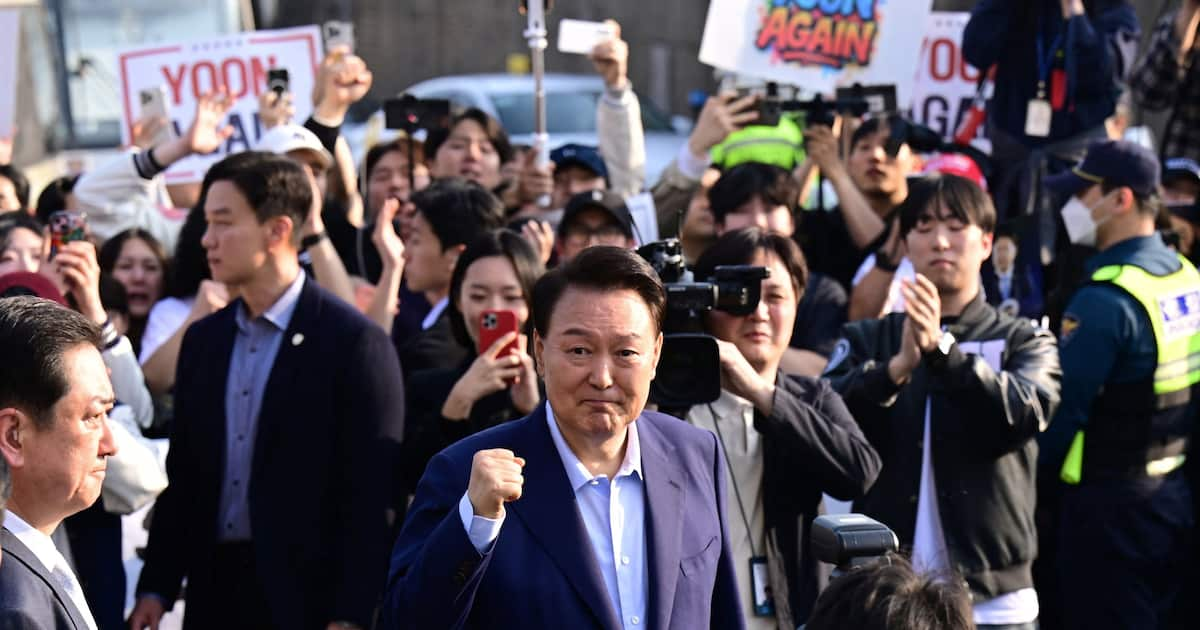Yoon's Legacy: A Challenge for South Korean Conservatives
Yoon Suk-yeol's presidency leaves a complex legacy for South Korea's conservative party, raising questions about its future direction and electability.
The recent conclusion of Yoon Suk-yeol's presidency marks a pivotal moment for South Korea's conservative political landscape. His term, characterized by both significant policy shifts and considerable controversy, presents a formidable challenge for the conservative party as it navigates the path towards future elections. Analyzing Yoon's legacy reveals both opportunities and significant hurdles for his successors.
A Divisive Presidency: Key Policy Achievements and Controversies
Yoon's presidency was marked by a decisive shift away from the more conciliatory approach of his predecessor, Moon Jae-in. His administration focused on strengthening the South Korea-US alliance, taking a firmer stance against North Korea, and implementing significant economic reforms.
Key Policy Achievements:
- Strengthened US-South Korea Alliance: Yoon prioritized deepening security cooperation with the United States, resulting in increased joint military exercises and a strengthened commitment to mutual defense. This resonated strongly with a segment of the conservative base.
- Economic Reforms: Efforts to deregulate certain sectors and attract foreign investment aimed to boost economic growth. While the long-term impact remains to be seen, these initiatives were central to Yoon's economic agenda.
- Tougher Stance on North Korea: Yoon adopted a more assertive approach towards North Korea, emphasizing deterrence and strengthening sanctions. This aligned with the security concerns of many conservatives.
Controversies and Backlash:
- Low Approval Ratings: Yoon's presidency was consistently plagued by low approval ratings, fueled by controversies surrounding his administration's handling of various political and social issues.
- Deepening Political Polarization: His policies exacerbated existing political divisions within South Korea, alienating segments of the population and hindering bipartisan cooperation.
- Internal Party Divisions: Disagreements within the conservative party itself regarding Yoon's policies and leadership style further complicated the political landscape.
The Challenge Ahead for South Korean Conservatives
Yoon's legacy presents a multifaceted challenge for the conservative party. The low approval ratings and significant political polarization raise questions about the party's electability in future elections.
Rebuilding Trust and Broadening Appeal:
The party must focus on rebuilding trust with the broader electorate. This requires a strategic reassessment of its policies and a commitment to inclusivity. Simply adhering to the same policies that led to Yoon's low approval ratings would be a recipe for electoral disaster.
Addressing Internal Divisions:
Healing internal divisions within the party is crucial. Differing opinions on policy and leadership must be addressed through constructive dialogue and compromise, rather than internal conflict. A unified front is essential for electoral success.
Finding a New Leader:
The search for a new leader who can unite the party and appeal to a wider range of voters is paramount. This leader needs to demonstrate both strong leadership and a willingness to engage in constructive dialogue across the political spectrum.
The Future of South Korean Conservatism
The future of South Korean conservatism hangs in the balance. The legacy of Yoon Suk-yeol's presidency serves as both a cautionary tale and a crucial learning opportunity. The party must learn from its mistakes, address internal divisions, and present a compelling vision for the future if it hopes to regain public trust and secure electoral victory. The path forward requires a profound understanding of the changing political landscape and a commitment to inclusive governance. Failure to adapt could result in a prolonged period in opposition.
Keywords: Yoon Suk-yeol, South Korea, Conservative Party, South Korean Politics, Elections, Political Legacy, US-South Korea Alliance, North Korea, Economic Reform, Political Polarization, Electability.
